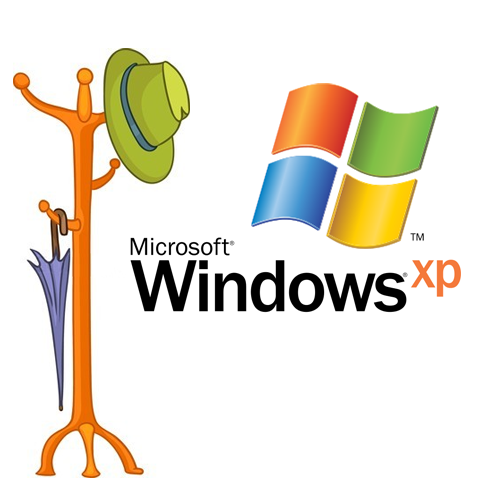
The clock is ticking for computers still running Windows XP. As of April 8th 2014, Microsoft will no longer be releasing updates for Windows XP. What does this mean for your office or home computers still running Windows XP? Your office or home computers are at risk if you have any computers still running Windows XP. Read on to get the details.
What was so special about Windows XP?
Windows XP was released in 2001 as a major overhaul to Windows 98 and Microsoft’s very unpopular Windows ME operating system. Some of the biggest advantages to Windows XP includes:
-
Due to it’s widespread use and popularity, there is a lot of support info out there.
-
It is simple, clean and easy to use for in its time.
-
You need less hardware (RAM, CPU power, etc) to run Windows XP.
-
Being extremely popular means more hardware vendors support it.
Now keep in mind most of these general qualities applied up to when Microsoft released Windows 7. 2010 was the last year Windows XP was the most widely used operating system on the planet since Windows 7 was more efficient and reliable.
What’s the risk in running Windows XP?
1. Patching
After April 8th, 2014 Microsoft will no longer be releasing patches and updates to Windows XP. Why should this matter to you? When Microsoft finds a bug in one of it’s more modern operating systems like Windows 7 or Windows 8, it is very likely that the same bug exists in Windows XP since all of Microsoft’s operating systems share similar code under the hood.
As soon as an update is released for Windows 7 or Windows 8, anyone in the public can look at what was fixed, which is practically pointing out exactly where Windows XP is vulnerable.
2. Lacking modern security measures
In the past, computers were more vulnerable to viruses passed through files being passed through a USB drive, Floppy or CD Drive. Nowadays most infections occur over the internet by relying on bugs in your internet browser or your operating system.
Windows 7 and Windows 8 have these updates built in. However Windows XP simply doesn’t support the software too help prevent the computer from being infected. The below figure shows the number of infections that were cleaned by operating system. Keep in mind all of these computers were up to date.
Figure 1: Infection rate (CCM) by operating system and service pack in the fourth quarter of 2012 as reported in the Microsoft Security Intelligence Report volume 14
How can you check if you are running Windows XP?
The easiest way to check if you are running Windows XP it to restart your computer and check for the Windows XP boot up logo as shown above.
How can you protect your office or home computers?
At this point there is no guaranteed way to keep Windows XP and to be safe. You should be planning to upgrade your operating system by purchasing Windows 7 or Windows 8.
I would recommend Windows 7 as it is similar to Windows XP and has a very intuitive interface. Both operating systems have great hardware support, so you should not need to upgrade unless your computer comes with a hand crank to turn on.



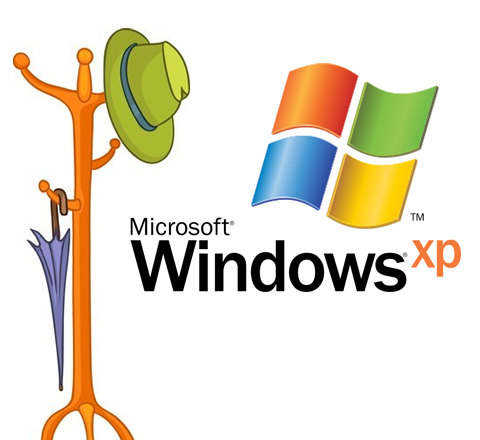
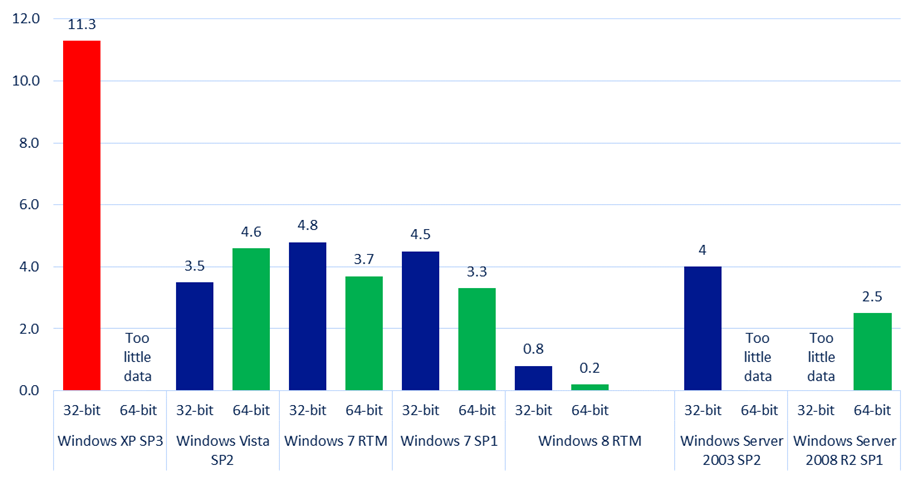
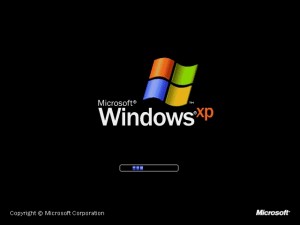
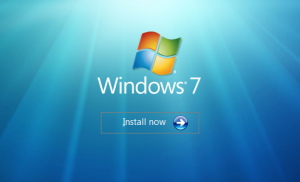



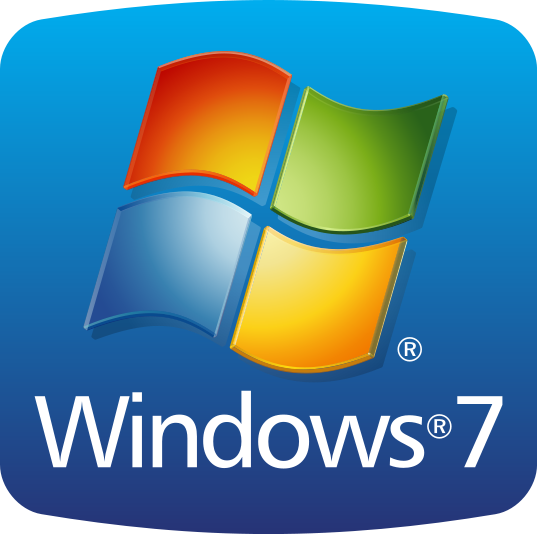
5 thoughts on “The Risks of Running Windows XP”
Comments are closed.